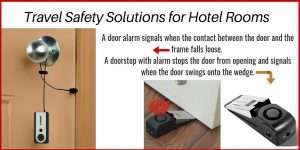How to Beat Jet Lag Quickly and Safely
If you’ve ever traveled across time zones, you know that jet lag can be debilitating and can influence your normal circadian rhythm, making you tired too early in the day or causing you to wake up too early in the morning. Jet lag can specifically cause physical fatigue and mental fog. Beating jet lag is all about managing and adapting your sleep pattern to your new location and time zone. Here is the latest and proven advice to keep your body clock ticking when traveling and to beat jet lag quickly.
1. Drink lots of water
Hydrate before, during, and after the flight! Dehydration is one of the biggest causes of jet lag, so drink as much as possible. How to know if you’re drinking enough: Keep downing water so that you visit the bathroom once an hour. After you pass through TSA security, buy a bottle of water (or bring an empty one from home) and fill it at a hydration station at the airport.
2. Avoid alcohol to beat jet lag
Alcohol has the opposite effect of hydration. Alcohol dehydrates you and can impact your sleep negatively. While it can relax you and help with falling asleep it is a sleep disruptor and lessens the quality of your sleep.
3. Use a Melatonin supplement
Melatonin is a hormone made by your body. The pineal gland in your brain produces and secretes Melatonin to help regulate biological rhythms such as sleep and wake cycles. Use Melatonin to help you sleep on the flight and during the first one to three nights at your destination. Try Melatonin at home to see which dose is most effective for you. Start with a low dose and work your way up if necessary. Ask your doctor for a recommendation.
4. Block out noise and light in flight
Most likely, you sleep in quiet and dark conditions at home. Additionally, you’re warm under a blanket. Try to replicate that environment the best you can while flying towards your destination. While first-class offers you a blanket, pillow, eyeshades, and, best of all, seats that recline all the way so you have a bed. I recommend making your economy seat as cozy for sleep as possible. Bring your own noise-canceling headphones, earplugs, eyeshades, a pillow designed for sleeping in an upright position, and a lightweight blanket or shawl.
5. Adjust to the new time zone immediately
Set your watch to the time of your destination the moment you take off and try to eat, and sleep accordingly. This mental trick helps make you feel as if you’re already acclimated to the new time.
6. Don’t nap upon arrival
Don’t take a quick nap upon arrival. No matter how tired you are, push through it and stay awake. For the first two nights, try to stay awake until 9 p.m. local time. Your internal clock should adjust within 48 to 72 hours.
7. Don’t sleep in to help beat lag
You’re tired and groggy, and your head feels heavy, and all you want to do is sleep. Don’t do it, don’t sleep in past 9 am at your new local time. Remember, it’s all about recalibrating your body clock or circadian rhythm quickly. Reset going to bed early, no matter how difficult, stay up until at least 9 pm. This, too, will help you minimize jet lag.
8. Go outside upon arrival
One of the best ways to sync your body to the new time zone is to go outside for a walk to envelop yourself in the natural light. Your body will begin to “read” what time it is. Some say try to go barefoot in a park for about 20 minutes. Getting your bare feet on earth will help discharge the static charge that builds up in you on the plane, which will allow your cells to recharge with healthy energy.
Final Thoughts on Beating Jet Lag When Traveling
Getting your brain in the new time zone is critical to preventing jet lag. Therefore, the most effective way to beat jet lag is to manage your sleep. The idea is to adjust your sleep pattern quickly to your destination’s time zone.










